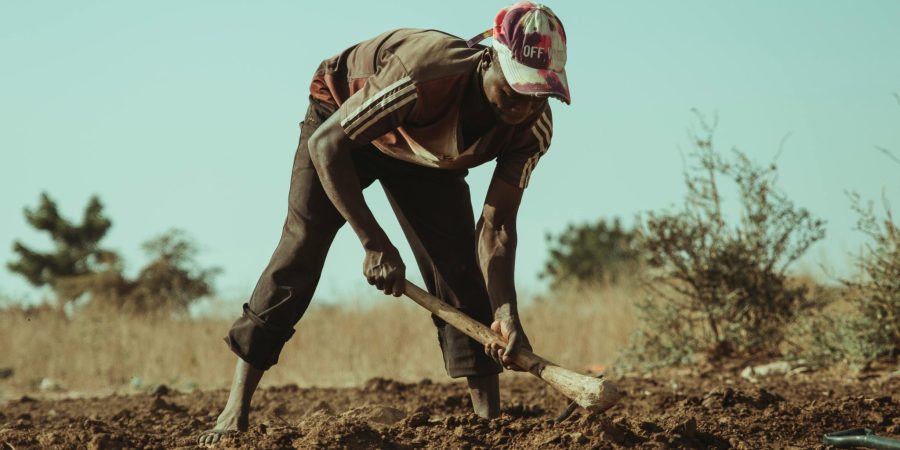Under the relentless midday sun, 62-year-old Chomba bends over, weeding his maize field, his back protesting with each movement. He’s been farming this land since he was 18, but these days, the work feels heavier. His sons? They left for Lusaka years ago. “Farming is for old men,” they told him.
Chomba isn’t alone. Across Zambia, the faces in the fields are growing older, and fewer young people are stepping in to replace them.
The Numbers Tell a Worrying Story
The latest agricultural census reveals a demographic time bomb. Nearly half of Zambia’s farming household heads are over 50. That’s 800,802 men and women who, like Charles, are nearing an age when bending to plant seeds becomes harder each season.
The youth vacuum is even more startling. Only 4,920 farmers, a mere 0.3%, are between 15 and 19 years old. Even the 20-24 age group makes up just 4.4% of farmers. Where are the young Zambians who will feed the nation in 20 years?
A Clearer View of Age Groups
For better clarity, we grouped the ages into four broad bands:
| Age Band | Age Range | Total Farmers | % of All Farmers |
|---|---|---|---|
| Youth | 15–29 | 247,714 | 14.1% |
| Mid-career | 30–49 | 864,014 | 49.2% |
| Pre-retirement | 50–64 | 429,889 | 24.5% |
| Senior | 65+ | 213,722 | 12.2% |
The mid-career group dominates (nearly half), while youth representation is dangerously low and seniors still make up over 1 in 10 farmers.
Why Young People Are Turning Away
In Kabwe, 24-year-old Miriam says:
“My parents worked the land their whole lives and barely scraped by. I want a job where I can earn real money.”
Her perspective is common. Despite high youth unemployment, farming remains unattractive to most young Zambians, who see it as a poverty trap.
The Gender Gap Narrows With Age
While men make up 74.9% of all farming household heads, this dominance fades over time:
- In the 15–19 age group, women are only 34.2%
- But by 75–79, women make up 51.1%, becoming the majority
This suggests women often inherit land or take over after a male spouse retires or passes, rather than entering farming early on.
The Risks of an Aging Farming Population
The implications are serious:
- Older farmers often rely on traditional practices
- They are less likely to adopt climate-smart or tech-driven methods
- Productivity may decline as they slow down or retire
- Knowledge gaps may form if younger generations are disconnected from land and weather literacy
Agricultural economist Dr. Mwila puts it plainly:
“When these older farmers go, who will know how to read the rains or rotate crops properly?”
What Must Change?
In Eastern Province, 28-year-old Jacob is proving the narrative wrong. With a solar-powered irrigation system and a market-pricing app, he’s running a profitable farm.
“Young people think farming is just hoes and hunger,” he says. “But tech changes everything.”
His story points to real solutions:
- Agri-tech investment to modernize perception and practice
- Land access reforms so youth don’t have to wait for inheritance
- Startup grants and loans for young, first-time farmers
A Race Against Time
If over 36% of farmers are above 50, Zambia risks losing a huge chunk of its farming workforce within a decade. And with only 14% under 30, there’s no clear replacement pipeline.
As the sun sets on Charles’ land, he wonders who will plant maize next season. It’s not just his personal concern, it’s a national food security issue.
Are you a young farmer? Or someone who left agriculture? Share your story below.
